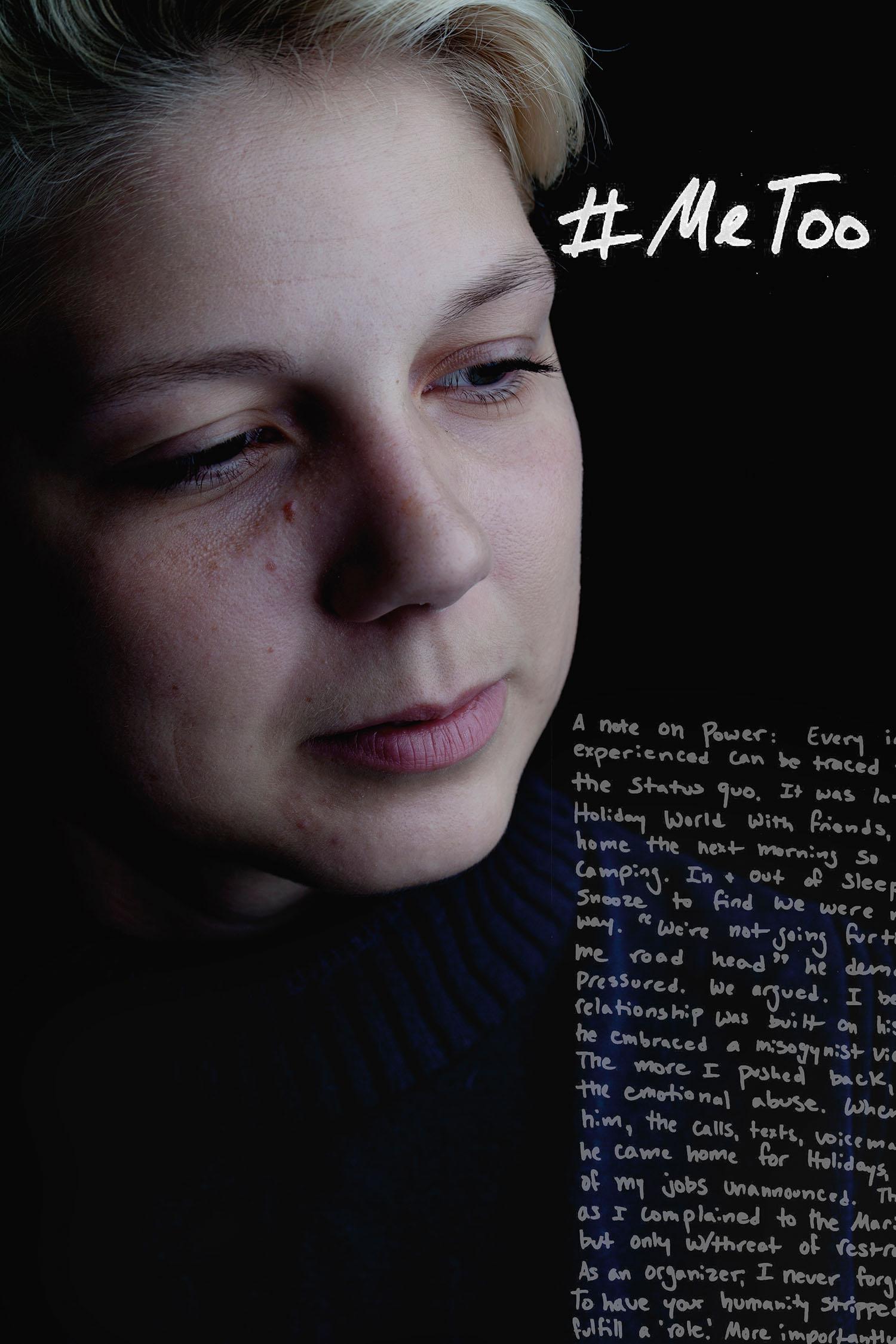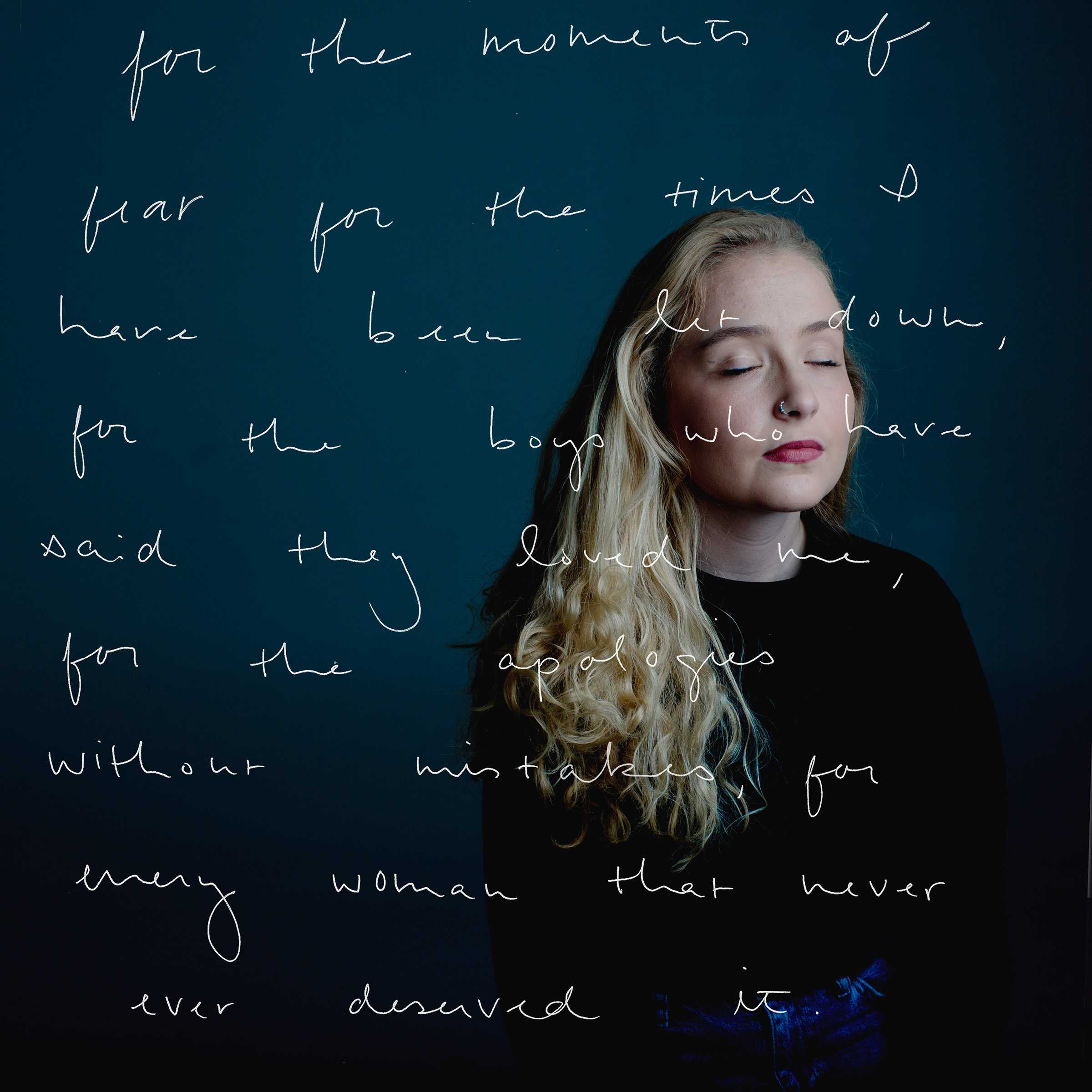In 1989, the New York Times published an opinion piece titled “Why Hide Rapes?” by Geneva Overhosler. Overhosler, an editor at the Des Moines Register, argued against a common law in the ethics of journalism: the withholding of the names of sexual violence victims.
Overhosler called rape an “American shame,” and argued that “as long as rape is deemed unspeakable, the public outrage will be muted.”
If you’ve been sexually harassed or assaulted write ‘me too’ as a reply to this tweet. pic.twitter.com/k2oeCiUf9n
— Alyssa Milano (@Alyssa_Milano) October 15, 2017
In response to an Oct. 5 2017 New York Times article detailing eight sexual assault and harassment allegations against Harvey Weinstein, actress Alyssa Milano posted a tweet asking women to reply “me too” if they had been sexually harassed or assaulted. Talisman writer Jessica Voorhees previously reported on this trend.
With the hashtag, women shared their experiences with friends, family, and strangers. The movement pushes against the same anonymity Geneva Hosler opposed and encourages survivors to speak the unspeakable.
This project is inspired by both movements. For survivors, I hope that this project illustrates the control you have over your story. I hope you feel the power in your voice and the solidarity of women everywhere as we say “me, too.”
For the rest, I hope that you consider the personalities and lives affected by sexual violence and misbehavior.
This project is ongoing. To be a part of it, contact the photographer, Morgan Hornsby, at 606-493-6989.
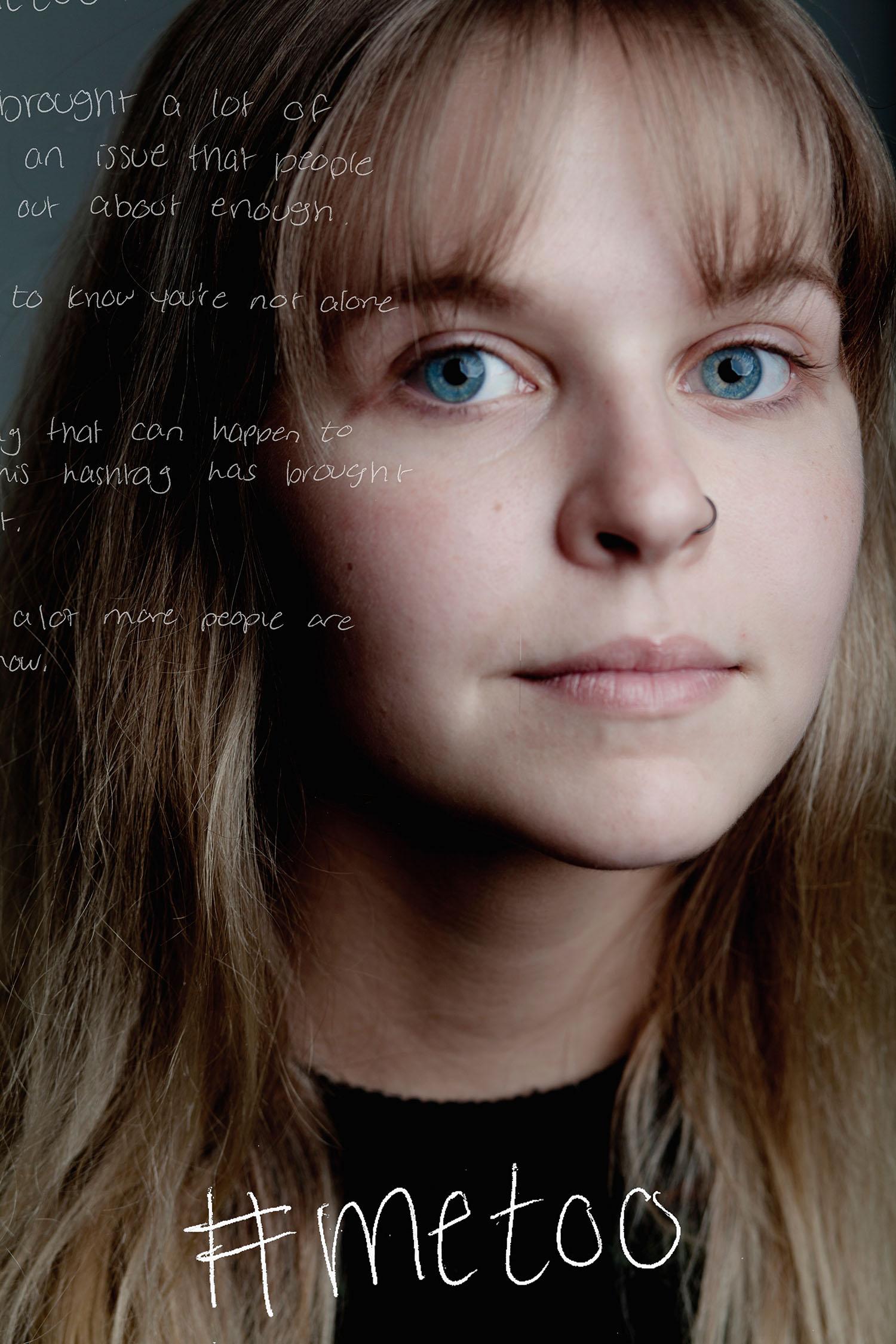
“This has brought a lot of attention to an issue that people don’t speak out about enough. It’s nice to know that you are not alone in this. It’s something that can happen to anyone and this hashtag has brought light to that. I think a lot more people are aware now.”
—Taylor Frint
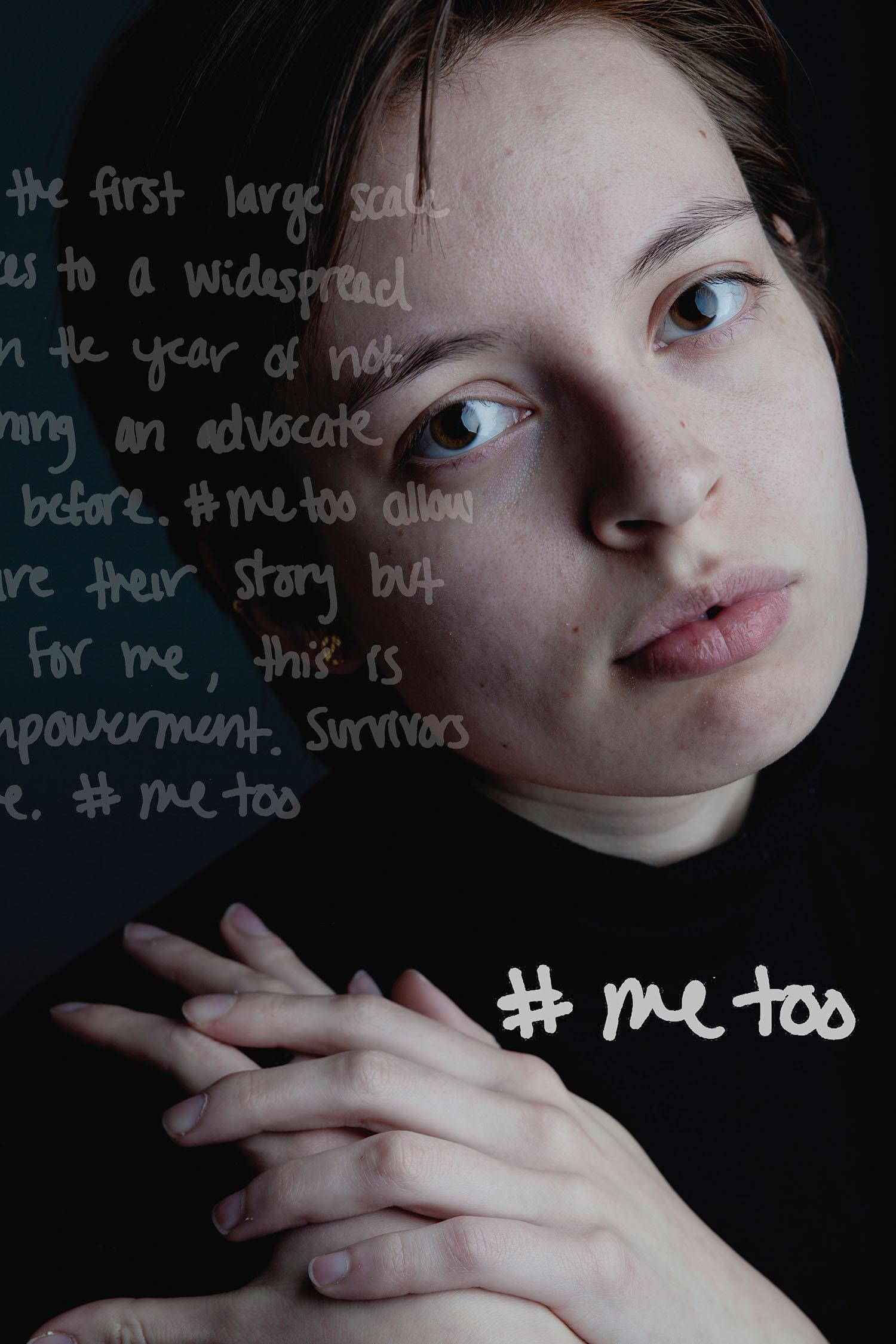
“The #metoo movement is the first large-scale project that has truly put faces to a widespread epidemic. 2017 has been the year of not taking bullshit and for becoming an advocate even if you haven’t been before. #metoo allows survivors to not only share their story but feel a little less alone.”
—Natalie Hedberg
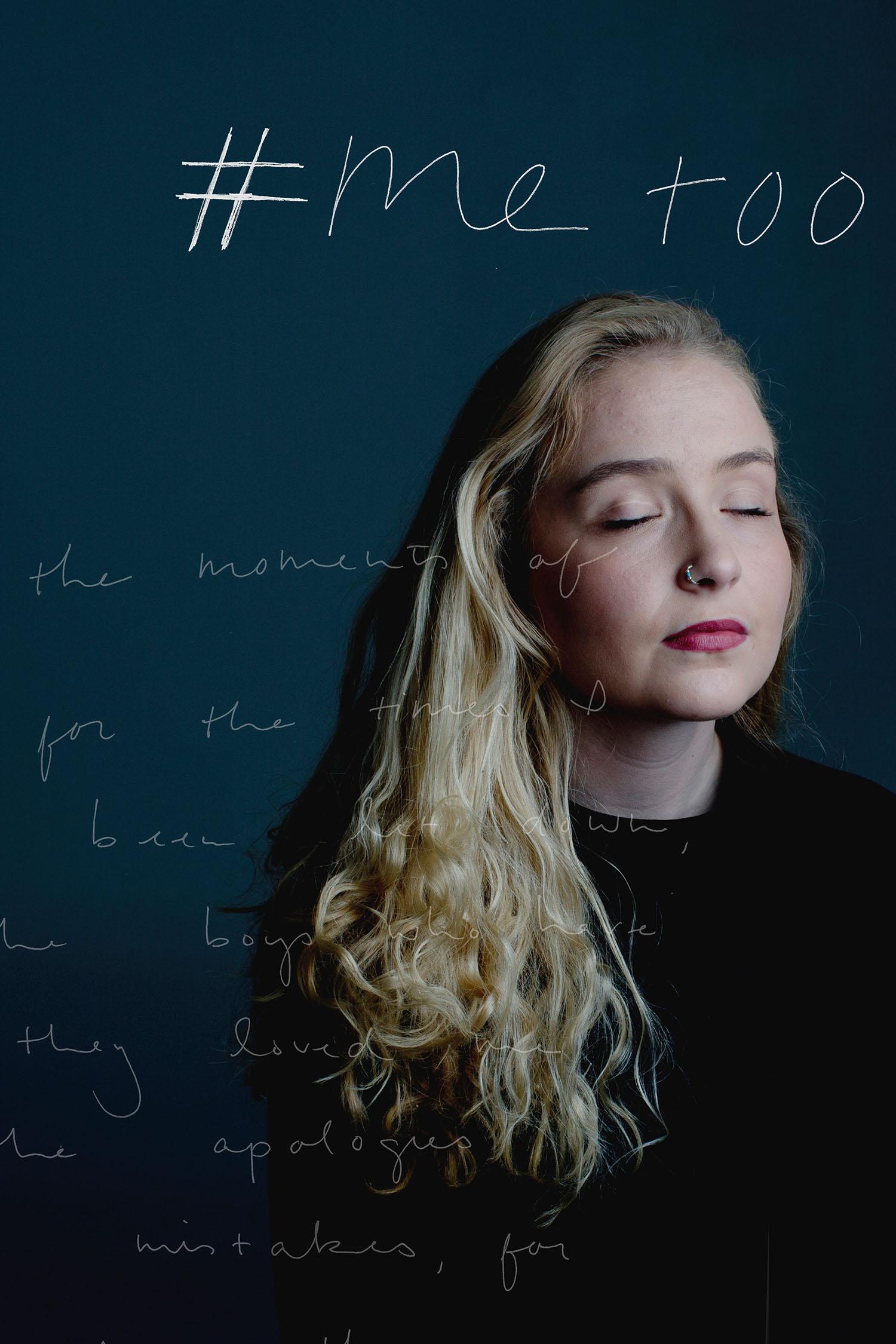
“For moments of fear,
for the times I have been let down,
for the boys who have said they loved me,
for the apologies without mistakes,
for every woman who never ever deserved it.”
—Jordan Frodge
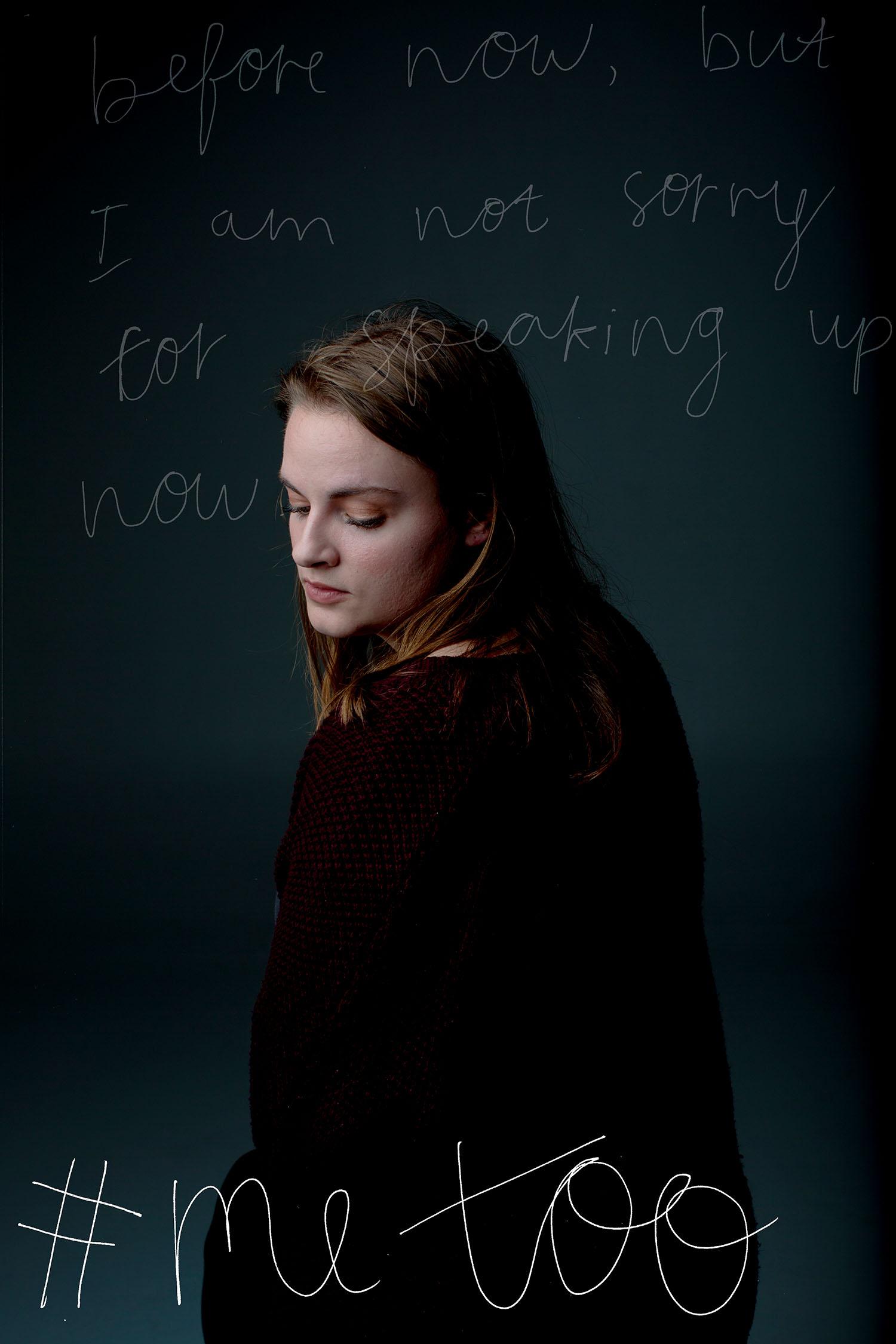
“I am sorry that I never said anything before, but I am not sorry for speaking up now.”
—Chloe Cooper
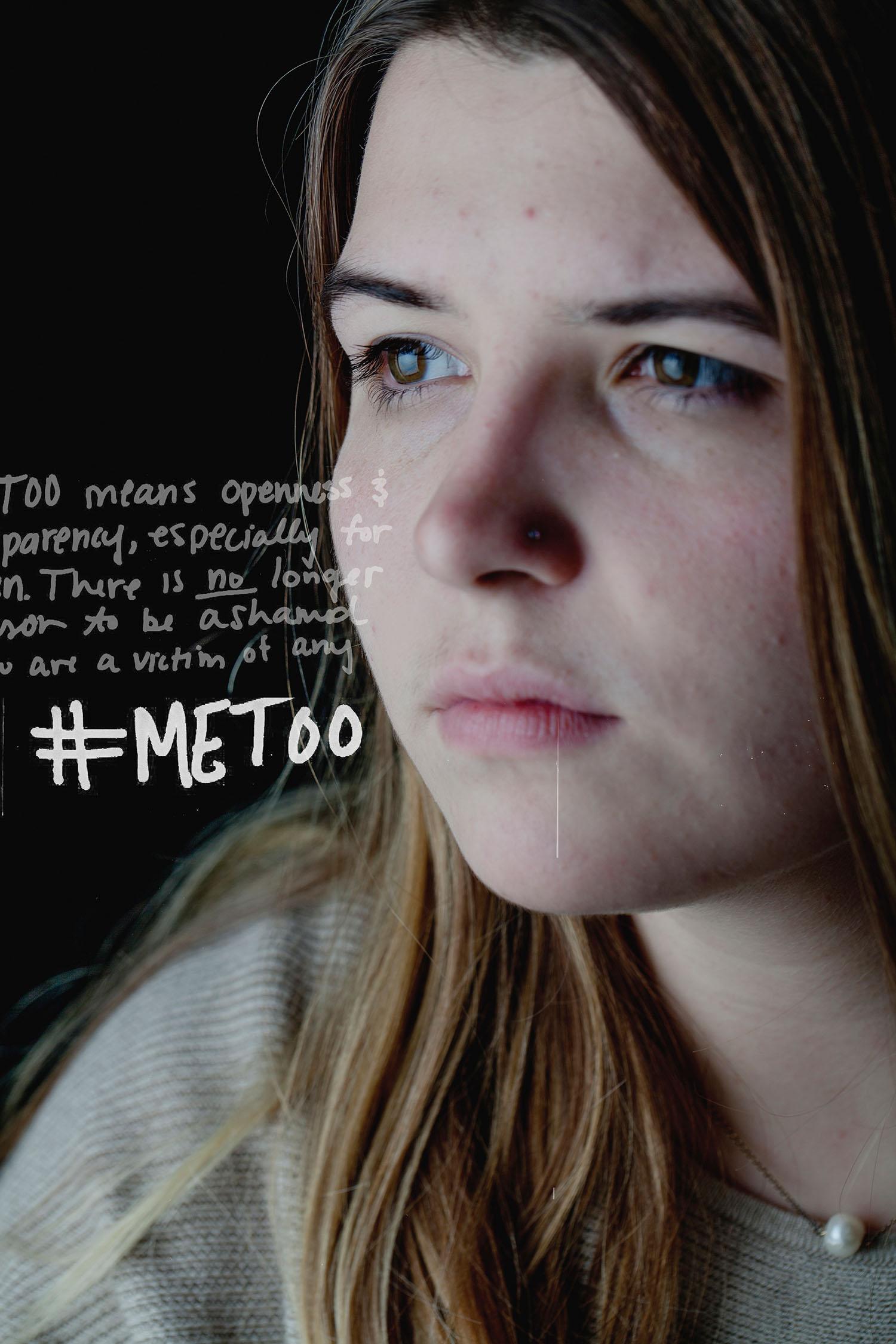
“#metoo means openness and transparency, especially for women. There is no longer reason to be ashamed if you are a victim of any form.”
—Ashley Hilger
